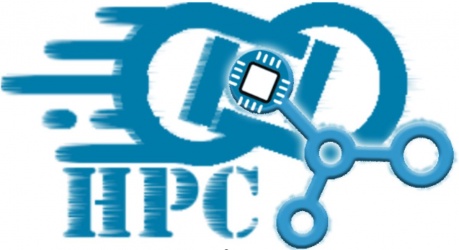Why Choose Our Internships
– Fascinating topics across various domains.
– Work closely with experienced mentors.
– Apply theoretical knowledge to real-world challenges.
– Experiencing dynamic and supportive ecosystem.
– Contribute meaningfully to projects that matter.
– Enhance your skills in areas including (but not limited to) ML, deep learning, software development, data analysis, and more.
How to apply
1. Read Project Descriptions Carefully: Take your time to thoroughly review the project descriptions. Understand the goals, requirements, and expectations associated with each project.
2. Select Your Project Thoughtfully: Choose a project that aligns with your interests, skills, and aspirations.
3. Complete the Application Form with Care: Once you’ve decided on a project, fill out the application form. Provide accurate information, showcase your enthusiasm, and highlight relevant experiences.
Deadlines
Application Deadline: June 4, 2024 (15 Khordad)
Notification for Acceptance (Normal Applications): June 8, 2024 (19 Khordad)
Late Application Deadline: June 17, 2024 (28 Khordad)
Notification for Acceptance (Late Applications): June 20, 2024 (31 Khordad)
Projects
Prerequisites:
Image processing: You should be familiar with techniques for image filtering, enhancement, and restoration.
Computer vision: You’ll need to have a good understanding of image classification, object detection, and segmentation techniques.
Machine learning: You’ll need to understand the basics of machine learning, such as supervised and unsupervised learning, as well as deep learning techniques like convolutional neural networks (CNNs) and recurrent neural networks (RNNs).
Programming: You’ll need to be proficient in at least one programming language, such as Python, and be familiar with popular libraries like TensorFlow, PyTorch, and OpenCV.
Mathematics: You’ll need to be comfortable with mathematical concepts such as calculus, optimization, and differential equations.
Description
This topic involves using deep learning techniques to perform perspective transformations on images. The aim is to correct distortions caused by camera perspectives, such as when taking photos of buildings or landscapes.
Prerequisites:
Image processing: You should be familiar with techniques for image filtering, enhancement, and restoration.
Computer vision: You’ll need to have a good understanding of image classification, object detection, and segmentation techniques.
Machine learning: You’ll need to understand the basics of machine learning, such as supervised and unsupervised learning, as well as deep learning techniques like convolutional neural networks (CNNs) and recurrent neural networks (RNNs).
Programming: You’ll need to be proficient in at least one programming language, such as Python, and be familiar with popular libraries like TensorFlow, PyTorch, and OpenCV.
Mathematics: You’ll need to be comfortable with mathematical concepts such as calculus, optimization, and differential equations.
Description
This topic involves the analysis and generation of document images that contain multiple types of content, such as text, images, and graphics. The aim is to develop algorithms that can automatically analyze and generate these types of documents.
Prerequisites:
Image processing: You should be familiar with techniques for image filtering, enhancement, and restoration.
Computer vision: You’ll need to have a good understanding of image classification, object detection, and segmentation techniques.
Machine learning: You’ll need to understand the basics of machine learning, such as supervised and unsupervised learning, as well as deep learning techniques like convolutional neural networks (CNNs) and recurrent neural networks (RNNs).
Programming: You’ll need to be proficient in at least one programming language, such as Python, and be familiar with popular libraries like TensorFlow, PyTorch, and OpenCV.
Mathematics: You’ll need to be comfortable with mathematical concepts such as calculus, optimization, and differential equations.
Description
This topic involves developing a forward algorithm that can solve both image classification and segmentation problems simultaneously. The aim is to develop a more efficient and accurate algorithm for these tasks.
Prerequisites:
Image processing: You should be familiar with techniques for image filtering, enhancement, and restoration.
Computer vision: You’ll need to have a good understanding of image classification, object detection, and segmentation techniques.
Machine learning: You’ll need to understand the basics of machine learning, such as supervised and unsupervised learning, as well as deep learning techniques like convolutional neural networks (CNNs) and recurrent neural networks (RNNs).
Programming: You’ll need to be proficient in at least one programming language, such as Python, and be familiar with popular libraries like TensorFlow, PyTorch, and OpenCV.
Mathematics: You’ll need to be comfortable with mathematical concepts such as calculus, optimization, and differential equations.
Description
Prerequisites:
Image processing: You should be familiar with techniques for image filtering, enhancement, and restoration.
Computer vision: You’ll need to have a good understanding of image classification, object detection, and segmentation techniques.
Machine learning: You’ll need to understand the basics of machine learning, such as supervised and unsupervised learning, as well as deep learning techniques like convolutional neural networks (CNNs) and recurrent neural networks (RNNs).
Programming: You’ll need to be proficient in at least one programming language, such as Python, and be familiar with popular libraries like TensorFlow, PyTorch, and OpenCV.
Mathematics: You’ll need to be comfortable with mathematical concepts such as calculus, optimization, and differential equations.
Description
This topic involves using deep learning techniques to generate images based on textual descriptions. The aim is to develop algorithms that can generate realistic images that match the descriptions provided.
Prerequisites:
Javascript (elementary knowledge)
Git (Essential)
Node JS & Express JS (Desired)
Docker (Desired)
Kubernetes (Desired)
Preferred number of apprentices: 2
Description:
Overleaf is one of the best online latex editors. Privacy concerns, lack of proper support for Persian language and limitations of the free version, has led to IPM HPC center to host and provide the community version of Overleaf with integration with HPC SSO and provide this service to users.
This project aims to further develop and extend functionality of this service, as well as improving the quality of service.
Goals:
Updating the software to latest version
Adding the support for Persian language
Adding proper monetization mechanisms
Planning:
Learning about docker, kubernetes and microservices and HPC development and deployment process (1 to 2 weeks)
Getting familiar with Overleaf code base and HPC modifications (1 week)
Improving SSO integration (1 week)
Updating to latest version (1 week)
Adding support for Persian language (2 weeks)
Improving user interface and workflow (2 weeks)
Adding monetization mechanisms (4 weeks)
Prerequisites:
Linux
Python
Docker (preferred)
Description:
This project aims to train talented people to cooperate in the development of the Docker containers management system.
Preferred number of apprentices: 1
Goals:
Develop new features for Docker containers management system.
Prerequisites:
CSS and javascript
Java
Spring framework
Description:
The aim of this project is to train talented people for the design and development of web applications by working on small projects.
Preferred number of apprentices: 3
Goals:
Develop new features for IPM portal and sub projects
Prerequisites:
HDL
Passion for hardware

